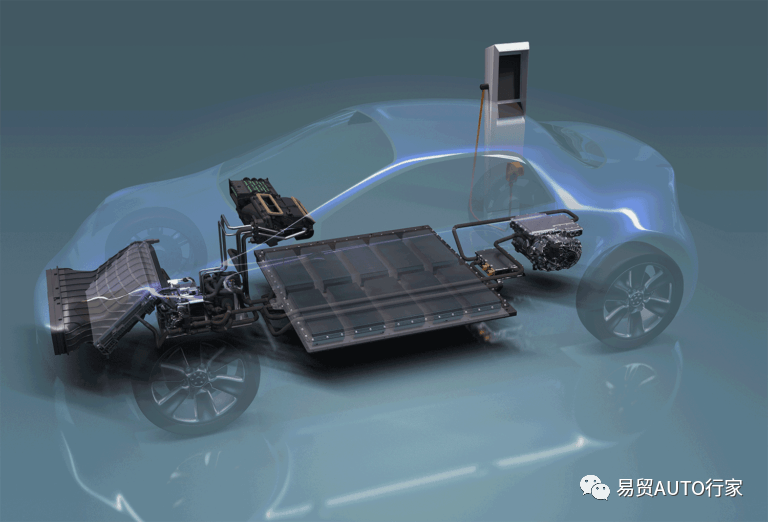The rapid growth of domestic new energy and huge market space also provide a stage for local thermal management leading manufacturers to catch up.
At present, low temperature weather seems to be the biggest natural enemy of electric vehicles, and winter endurance discounts are still the norm in the industry. One of the main reasons is that the activity of the battery decreases at low temperatures, the performance decreases, and the other is that the use of warm air conditioning will increase power consumption.
There is an industry view that before the breakthrough in existing battery technology, the real gap in low-temperature battery life is the thermal management system.
Specifically, what are the technical routes and players in the thermal management industry? How will relevant technologies evolve? What is the capacity of the market? What are the opportunities for localized substitution?
According to module division, automotive thermal management system includes cabin thermal management, battery thermal management, electric motor thermal management three parts.
Heat pump or PTC? Car company: I want them all
Without the engine heat source, new energy vehicles need to seek "foreign aid" to produce heat. At present, PTC and heat pump are the main "foreign aid" for new energy vehicles.
The principle of PTC air conditioning and heat pump air conditioning is different mainly in that PTC heating is "manufacturing heat", while heat pumps do not produce heat, but only heat "porters".
PTC's biggest Bug is power consumption. Heat pump air conditioning seems to be able to achieve the effect of heating in a more energy-efficient way.
Main force: integrated heat pump
To simplify piping and reduce the space footprint of the thermal management system, integrated components have emerged, such as the eight-way valve used by Tesla on the Model Y. he eight-way valve integrates multiple components of the thermal management system, and precisely controls the operation of each component through the on-board computer to achieve efficient operation of the thermal management system working mode.
"Century-old store" : International Tier1 actively grabs the market
For a long time, the international leading enterprises have mastered the key core components in the process of vehicle matching, and have a strong overall thermal management system development capability, so they have strong technical advantages in system integration.
At present, the global market share of the thermal management industry is mostly occupied by foreign brands, Denso, Han, MAHle, Valeo four "giants" together account for more than 50% of the global automotive thermal management market.
With the acceleration of the electrification process of the automotive industry, with the advantage of first-mover technology and market foundation, the giants have gradually entered the field of new energy vehicle thermal management from the traditional automotive thermal management field.
Latecomers on top: component-system integration, domestic Tier2 updimension play
Domestic manufacturers mainly have some more mature single products in the thermal management parts, such as Sanhua’s valve products, Aotecar’s air conditioning compressor, Yinlun’s heat exchanger, Kelai mechanical and electrical ‘s carbon dioxide high pressure pipeline.
local alternative opportunities
In 2022, the new energy industry continues to experience explosive growth.The rapid development of electrification has spawned numerous subdivisions and brought huge opportunities and increments to many markets, including the new energy thermal management industry.
By 2025, the global new energy vehicle thermal management market is expected to reach 120 billion yuan. Among them, the domestic new energy passenger vehicle thermal management industry market space is expected to reach 75.7 billion yuan.
The rapid development of electrification has spawned numerous subdivisions and brought huge opportunities and increments to many markets, including the new energy thermal management industry.
By 2025, the global new energy vehicle thermal management market is expected to reach 120 billion yuan. Among them, the domestic new energy passenger vehicle thermal management industry market space is expected to reach 75.7 billion yuan.
Compared with foreign manufacturers, domestic new energy vehicle thermal management manufacturers have more local supporting and scale effect.
Post time: Dec-23-2023









